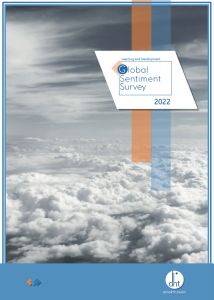Join getAbstract to access the summary!

Join getAbstract to access the summary!
Donald H. Taylor
Learning and Development Global Sentiment Survey 2022
Donald H. Taylor, 2022
What's inside?
L&D is situated at an inflection point: It must prove its value to stakeholders at a time when employee skill development matters more than ever.
Recommendation
Every year since 2014, the “Learning and Development Global Sentiment Survey” has asked thousands of L&D professionals: “What will be hot in workplace L&D” in the coming year? The 2022 report, which is co-sponsored by getAbstract (and therefore unrated), aggregates the answers of 3,500 individual respondents from 112 countries on every continent, including Africa for the first time this year. As the world emerges from the COVID-19 pandemic, learning expert Donald H. Taylor’s survey reveals L&D is struggling to prove its value to stakeholders – at a time when employees need to develop their skills more than ever.
Summary
About the Author
Donald H. Taylor has chaired the London Learning Technologies Conference since 2000, and from 2010 to 2021 was the chair of the Learning and Performance Institute. He speaks extensively on the learning and development profession and is the author of Learning Technologies in the Workplace.






















Comment on this summary